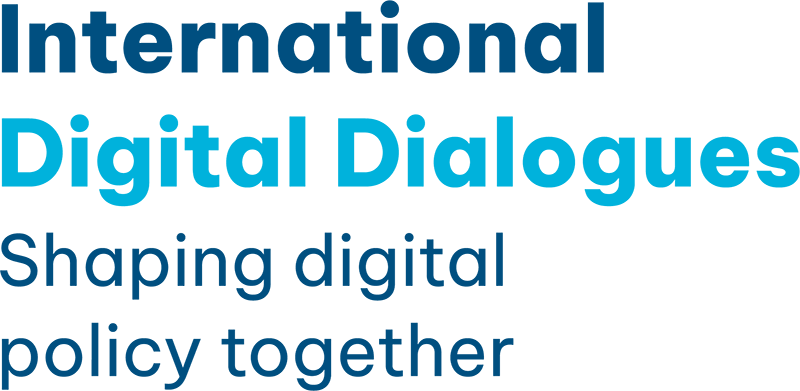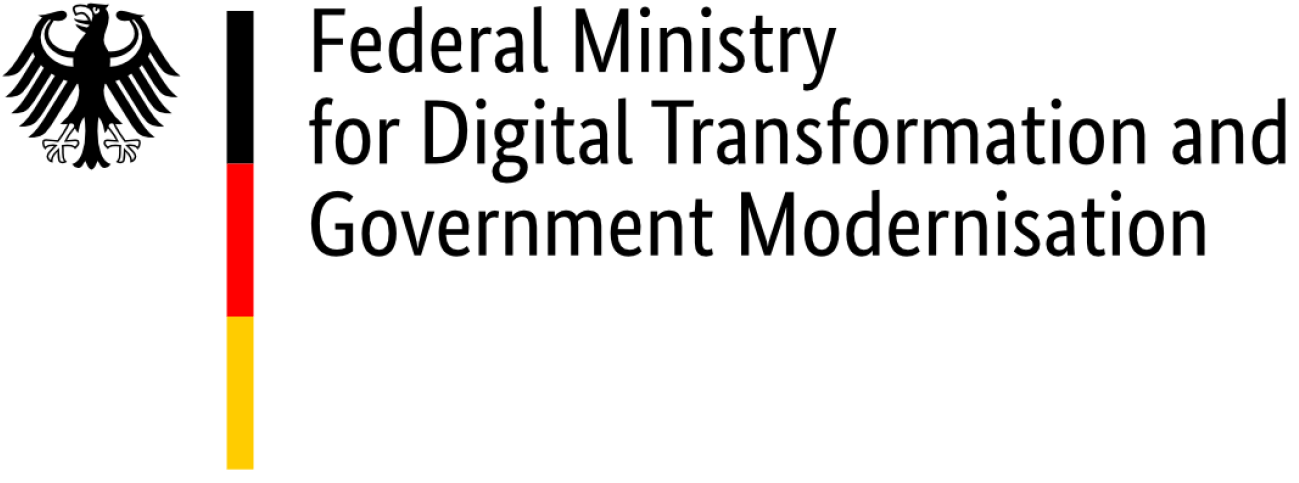Panel discussion on disinformation and deepfakes
Singapore

In the global "super election year" of 2024, around 3.6 billion people - roughly 45 per cent of the world's population - will be able to cast their vote in elections. So-called deepfakes, videos generated by AI that sometimes appear deceptively real, are increasingly being used around the world to influence voters. In Germany and partner countries of the International Digital Dialogues, digital manipulation and its effects are also increasingly coming into focus.
"That’s not Taylor Swift"
The panel discussion "That's Not Taylor Swift - Governance in an Era of Deepfakes" at the ATxSummit brought together experts to shed light on current approaches and challenges. Hiroaki Kitano, Chief Technology Officer of the Sony Group, described the topic of deepfakes as one of the most significant problems that need to be tackled in relation to the use of technology. Natasha Crampton, Chief Responsible AI Officer at Microsoft, explained that her company already uses content credentials, a tool developed by the Coalition for Content Provenance and Authenticity. It enables users to sign and authenticate their content using digital watermarks.
Professor Yi Zeng from the International Research Centre for AI Ethics and Governance at the Chinese Academy of Sciences proposed the creation of a global deepfake observatory as an approach to promote global exchange. Ieva Martinkenaite, Senior Vice President for Research and Innovation at the Norwegian telecommunications company Telenor Group, emphasised the need for cooperation at the highest level. Heads of state and government responsible for critical infrastructure should engage in dialogue about the impact of deepfakes.
Following on from this, State Secretary Schnorr stated that the global discussion must also involve relevant stakeholders from civil society, business and research. For the successful development of standards, a clear definition of deepfakes must be jointly agreed upon. The main aim is to promote technical innovation while at the same time upholding ethical standards and human rights. Deepfakes pose a threat to trust in the very democratic institutions that are needed to harmonise technological progress and societal needs.
Global efforts against disinformation
To counter AI-generated disinformation, governments around the world have developed approaches and initiatives involving civil society, business and research. At EU level, the Digital Services Act (DSA) has been fully applicable since February 2024. The DSA provides companies with guidelines to minimise risks while protecting fundamental rights such as the right to freedom of expression.
This year, the USA also became one of the first countries to introduce a specific bill to regulate artificially created or altered photo, video or voice recordings, the Deepfakes Accountability Act.
Similar to the European DSA, the city-state of Singapore has also taken measures to minimise the risks of disinformation. Earlier this year, Josephine Teo, Singapore's Minister for Communications and Information, announced a new $20 million initiative to strengthen trust and security on the internet. Singapore's approach to tackling disinformation is multi-pronged, combining regulatory measures, technological innovation and public education. The “Protection from Online Falsehoods and Manipulation Act” (POFMA) came into force in 2019. POFMA authorises authorities to order the removal of false information from platforms. In addition, the Singaporean government is implementing public awareness campaigns. These aim to improve citizens' digital literacy and critical thinking. This should enable the population to recognise disinformation and respond to it effectively. One example of this is the "3A Approach" published by the Cyber Security Agency (CSA).
Cooperation in the Singaporean-German Digital Dialogue
Singapore and Germany are focusing on a broad multi-stakeholder approach to involve governments, businesses, academia, and civil society in the bilateral digital dialogue and jointly develop effective strategies to combat disinformation.
BMDV is inviting its partner countries to the International Digital Dialogues Conference in Berlin on 21 and 22 November. If you are interested in participating, you can register for the conference on this website shortly.
More interesting news

Singapore
AsiaTech x Singapore 2024: Exchange on the Singaporean-German Digital Dialogue
From 29 to 31 May 2024, State Secretary Schnorr from the German Federal Ministry for Digital and Transport (BMDV) took part in the AsiaTech x Singapore technology conference as part of the Singaporean-German Digital Dialogue. State Secretary Schnorr met with German and Singaporean stakeholders in the technology sector. He also agreed on the next steps of the Digital Dialogue with the Singaporean Ministry of Communications and Information (MCI) and its digital agency Infocomm Media Development Authority (IMDA).
Read more … AsiaTech x Singapore 2024: Exchange on the Singaporean-German Digital Dialogue
Newsletter
Stay informed! To subscribe to the Digital Dialogues newsletter, enter your e-mail address here. Please also refer to our privacy notice.


